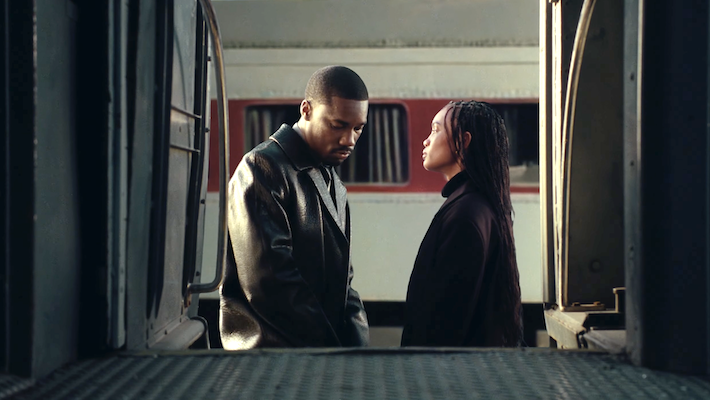These songs reflect a wide range of tones & points-of-view, just as our Founding Fathers intended.
On the Fourth of July holiday, you’ll hear many patriotic songs that have become anthems. Many have been around so long it’s hard to imagine a neighborhood parade or fireworks display without them. You’ll also hear songs that are, if not patriotic in the traditional sense, politically charged.
Here are 14 songs that chronicle the American experience. All have won major awards.
“The Stars and Stripes Forever,” Sousa’s Band (1897)
John Philip Sousa wrote the rousing march, which found renewed popularity in 1901. The instrumental piece was voted into the Grammy Hall of Fame in 1998 and the National Recording Registry in 2002 (its inaugural year).
“You’re a Grand Old Flag,” Billy Murray (1906)
This George M. Cohan song originated (under its original title “The Grand Old Rag”) in the 1906 Broadway musical George Washington, Jr. The song was first a hit that year for tenor Billy Murray, one of the biggest stars of the era. Murray’s version was voted into the National Recording Registry in 2003. Cohan’s song received the towering song award from the Songwriters Hall of Fame in 2002. Cohen’s many other patriotic classics include “Yankee Doodle Boy,” also recorded by Murray, and “Over There,” a World War I-era classic recorded by Nora Bayes.
“God Bless America,” Kate Smith (1939)
Kate Smith introduced Irving Berlin’s “God Bless America” on her popular radio show in November 1938. Her version of the stately ballad peaked at No. 5 on Billboard‘s Best Selling Retail Records chart in 1940. It was voted into the Grammy Hall of Fame in 1982 and the National Recording Registry in 2002. Other artists who have successfully covered the song include Bing Crosby, Connie Francis and Celine Dion.
“My Country ‘Tis of Three,” Marian Anderson (1939)
Marian Anderson chose this song to open her historic performance on the steps of the Lincoln Memorial on Easter Sunday 1939. The renowned contralto was originally slated to appear in Constitution Hall, but the Daughters of the American Revolution wouldn’t allow her to appear there before an integrated audience. First lady Eleanor Roosevelt intervened and persuaded the secretary of the interior to arrange this open-air concert, which attracted a crowd of more than 75,000 and a national radio audience in the millions. Anderson’s recording was voted into the Grammy Hall of Fame in 2009. Samuel French Smith wrote the lyrics in 1831.
“Ballad for Americans,” Paul Robeson (1940)
The great bass singer/actor Paul Robeson sang this patriotic cantata, which puts American history into a 10:42 opus. It shows that Hamilton: An American Musical was hardly the first entertainment piece to tackle American history. The piece, co-written by John La Touche and Earl Robinson, drew an inclusive picture of America that was progressive for its time. “Ballad for Americans,” originally titled “The Ballad for Uncle Sam,” was voted into the Grammy Hall of Fame in 1980.
“The House I Live In,” Frank Sinatra (1946)
Frank Sinatra released this song calling for tolerance in 1946. He also starred in an accompanying 10-minute film short, which received an honorary Academy Award in 1945. In the film, Sinatra, then nearing 30, confronts a group of school-age bullies who are ganging up on a boy because he’s Jewish. The song was voted into the Grammy Hall of Fame in 1998. Lewis Allan and Earl Robinson (one of the writers of “Ballad for Americans”) co-wrote the song, which Sinatra kept in his repertoire for decades. He included it on his 1965 compilation A Man and His Music, which won a Grammy for album of the year.
“This Land Is Your Land,” Woody Guthrie (1947)
Like John Lennon’s 1971 classic “Imagine,” Woody Guthrie’s song put progressive ideas across by wrapping them in a gentle and soothing musical framework. The song gained wide exposure in the folk boom of the early ’60s, with versions by such artists as the Kingston Trio and Peter, Paul & Mary. Yet, surprisingly, the song has never been a major hit single. The highest-charting version, by the New Christy Minstrels, reached No. 93 on the Billboard Hot 100 in 1962. Guthrie’s recording was voted into the Grammy Hall of Fame in 1989 and the National Recording Registry in 2002.
“We Shall Overcome,” Pete Seeger (1963)
This song, which Pete Seeger helped adapt from a 1900 hymn, became the unofficial anthem of the civil rights movement of the 1960s. It’s such a classic that it’s hard to imagine that it has been a Hot 100 hit just once, in 1963, when Joan Baez’s version peaked at No. 90. Seeger’s version was nominated for a 1963 Grammy for best folk recording. It didn’t win, but it was voted into the Grammy Hall of Fame in 1999 and the National Recording Registry in 2006. The song paved the way for such classics as Curtis Mayfield’s “People Get Ready” and Sam Cooke’s “A Change Is Gonna Come.”
“The Star-Spangled Banner,” Jimi Hendrix (1970)
Jimi Hendrix recorded this song at the 1969 Woodstock festival. Hendrix used his guitar to approximate the chaotic sounds of war. The recording was released on the triple-disk Woodstock soundtrack, which topped the Billboard 200 for four weeks in 1970. It brought Hendrix the only Grammy nomination of his career — best contemporary instrumental performance. He didn’t win, but the recording was voted into the Grammy Hall of Fame in 2009. Francis Scott Key wrote the lyric in 1814. The song officially became our national anthem in 1931. José Feliciano and Whitney Houston both reached the Hot 100 with memorable versions.
“American Pie,” Don McLean (1971)
Don McLean’s rollicking run through pop-culture history was so popular in 1971-72 that many stations played the full-length version, which ran 8:37. McLean’s single topped the Hot 100 for four weeks. McLean was nominated for four 1972 Grammys, but lost them all — a reflection of the inevitable fatigue that followed the song’s ubiquity. But over time the song has gotten its due. It was voted into the Grammy Hall of Fame in 2002 and the National Recording Registry in 2016. Madonna took the song to No. 20 on the Hot 100 in 2000, when she recorded it for her movie The Next Best Thing. Garth Brooks included it on The Ultimate Collection in 2016.
“America the Beautiful,” Ray Charles (1972)
Ray Charles’ achingly beautiful recording, now hailed as a classic, was relegated to the B-side of his soulful cover of the New Seekers’ 1970 pop hit “Look What They’ve Done to My Song.” Charles’ version of that song reached No. 65 on the Hot 100. Charles’ recording of “America the Beautiful” was voted into the Grammy Hall of Fame in 2005. Samuel A. Ward composed the melody in 1883. Katharine Lee Bates added the lyrics 12 years later.
“God Bless the USA,” Lee Greenwood (1984)
Lee Greenwood’s modern-day patriotic classic won single and song of the year at the Country Music Association Awards in 1984. Greenwood’s song reached No. 7 on the Hot Country Singles chart in 1984, but it didn’t make the Hot 100 until after 9/11, when a newly recorded version reached No. 16. The American Idol finalists took the song to No. 4 on the Hot 100 in 2003.
“Born in the U.S.A.,” Bruce Springsteen (1984)
Bruce Springsteen’s rousing song seemed to be a flag-waver, but actually had a more nuanced message. The song was released as the third single from Springsteen’s blockbuster album of the same name. It reached No. 9 on the Hot 100 and received a 1985 Grammy nom for record of the year. It didn’t win, but the album was voted into the Grammy Hall of Fame in 2012.
“This Is America,” Childish Gambino (2018)
Childish Gambino’s examination of the state of race and policing in America won Grammys for record and song of the year and best music video. It was only the third work in Grammy history to sweep all three of those categories, following USA for Africa’s “We Are the World” and Adele’s “Rolling in the Deep.” “This Is America,” which entered the Hot 100 at No. 1, also won best rap/sung performance. Childish Gambino (Donald Glover) co-wrote the song with Ludwig Göransson and Jeffery Lamar Williams.



